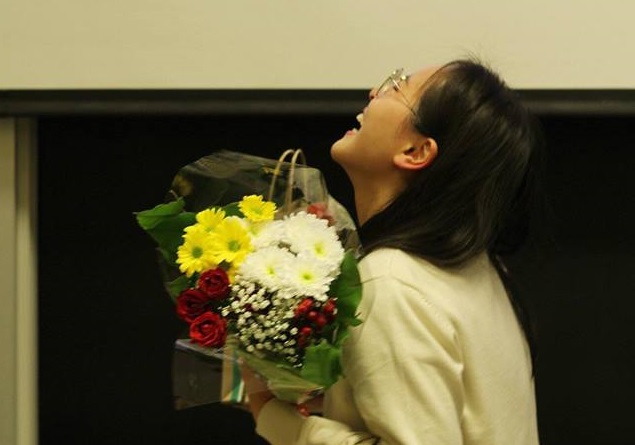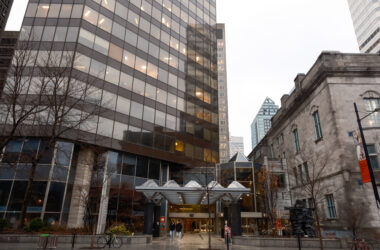McGill Students for HanVoice, a non-profit that advocates for North Korean human rights, hosted “Alice Kim: The Journey of a North Korean Defector” on Nov. 16. The event featured two speakers: Kazue Takamura, professor at McGill’s Institute for the Study of International Development, and Alice Kim herself, who is in Canada as part of the HanVoice Pioneer Project. The six-month project offers North Korean refugees internships with Canadian parliamentarians in addition to training in advocacy and leadership. Kim finished a bachelor’s degree at Yonsei University in South Korea and just completed her first semester as a master’s candidate in political science and international studies.
Takamura discussed barriers to refugees accessing healthcare, education, shelter, and food. She emphasized that the estimated 100,000 to 300,000 North Korean refugees living abroad experience ‘protracted rightlessness’ when they defect to neighbouring countries, including Thailand, Vietnam, China, and Laos.
“Their rightlessness begins within the territory of North Korea,” Takamura said. “We hear so many stories about starvation and hunger in North Korea [. . .] so, before the departure, they face violence by their own country.”
Alice Kim was only two-years-old when her family arrived in South Korea in 1997. Born in Pyongyang, she grew up in a 500-square foot apartment in Seoul with her parents and younger sister, only discovering her family’s history when peers at school began to speculate about her origins.
“One day at school, a friend approached me and accused me of something I will never forget, ‘North Koreans like you survive on our South Korean taxes, so you are my slave. You have to follow my order,”’ Kim said.
Kim explained that she was a target for bullies because some South Koreans did not believe that aiding North Korean refugees was a good use of public funds.
“In the minds of South Koreans, they saw it as taxpayers’ dollars falling into my family’s hands,” Kim said.
Kim learned that her parents had both been government officials of the ruling Workers’ Party of Korea. In 1996, her father was promoted to a diplomatic position in China, which allowed the family to travel internationally as long as they complied to the government’s specifications.
“Like all other diplomats, moving abroad means that the family could accompany on one condition: One member of the family has to be left behind [in North Korea],” Kim said. “As an infant, I was prone to illness, so my parents chose to take me instead of my older sister. She was just six [years-old].”
Kim’s father began to criticize Kim Jong-Il’s policies during the 1994-1998 North Korean famine, jeopardizing the family’s safety.
“My father commented to others that Kim Jong-Il’s policies caused more harm than good,” Kim said. “My dad understood he had become a threat to Kim Jong-Il’s power [….] One night, he felt a bullet fly by his ear, and my parents immediately planned to escape.”
Arriving in South Korea during Kim Dae-jung’s presidency and the 1997 Asian financial crisis, Kim’s family did not find much support. She critiqued Kim Dae-jung’s Sunshine Policy, for which he received the 2000 Nobel Peace Prize, for being detrimental to North Korean refugees.
Kevin Seo, co-president of McGill Students for HanVoice, believes that Canada could be a prime destination for North Korean refugees. He urged the adoption of HanVoice’s North to North Project, which enables private sponsorship for North Korean refugee resettlement in Canada.
As Kim learned about the events that shaped North and South Korea’s history, she began to understand the influence of global leaders on the lives of countless people.
“In discovering my family history, I learned about the arbitrary lines that were drawn at moments in history which would change the course of my life,” Kim said. “If President Roosevelt and Stalin had not split our country in half in 1945, would there be a North or South Korea?”
Tearfully, Kim finished her story by describing plans to use her education as a tool to develop policies which will mitigate the pain experienced by Koreans.
“I plan to use policy tools like erasers and pens to redraw the lines that have changed the lives of countless North Korean people, and I hope, maybe, this imaginary line will lead me back to my older sister.”









